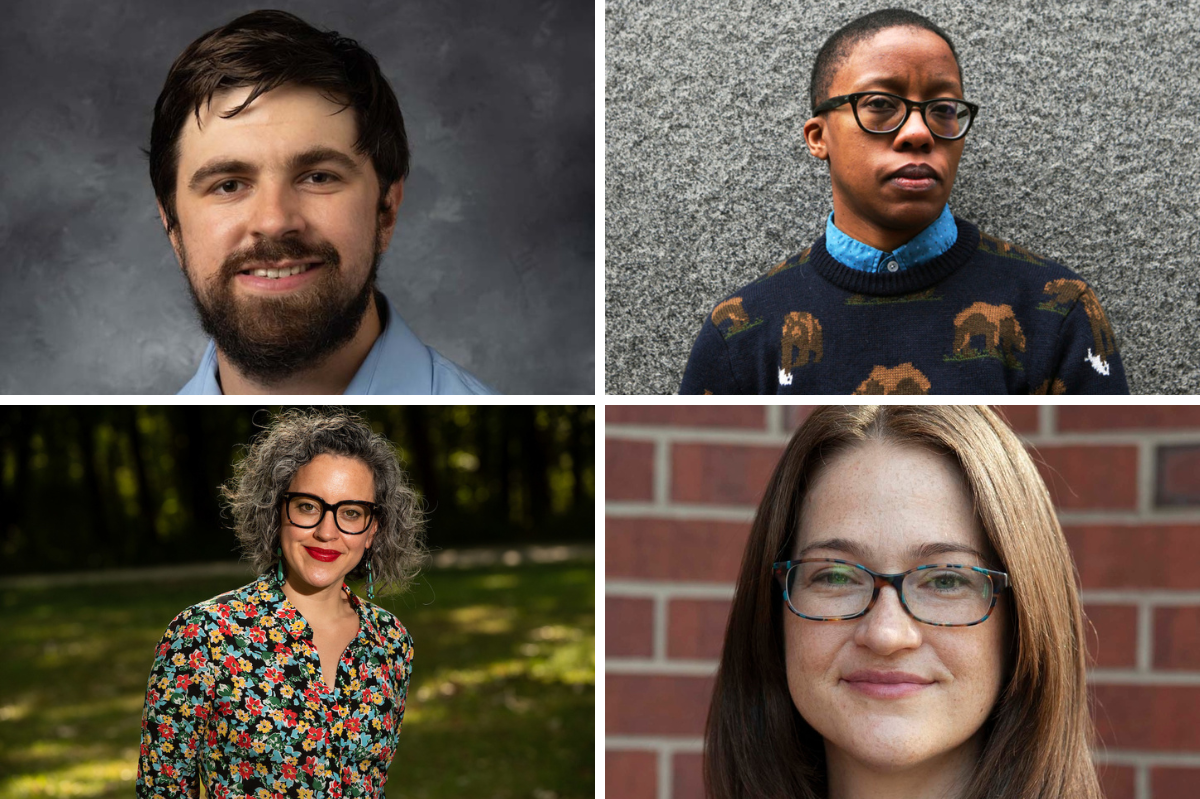Meet four CLAS faculty who are among the University of Iowa’s rising research stars:

Tom Folland
With a new NSF CAREER award, Tom Folland, assistant professor of physics and astronomy, will examine how certain classes of crystals can be used to control both the direction and orientation of light waves.
“This topic is of interest because the ability to control the properties of light is important for developing advanced optical technologies,” said Folland. “Technologies such as laser imaging, optical biosensors, and quantum optics all use carefully prepared light waves to effectively measure or communicate with the world around us.”
Folland’s lab applies the knowledge gained about the optical properties of light towards the development of new technologies such as thermal cameras, infrared light sources and infrared gas and liquid sensors. These can be used for applications such as measuring heat generation in domestic or commercial spaces, and measuring trace environmental pollutants, among other applications.
The $604,000 grant will also support the development of educational tools for middle-school students and undergraduate students, who typically receive limited education in the science and technological application of light particles and their effect on modern technologies. The educational tools will be distributed online, which will allow instructors from across the country to access them.
Read more about Folland’s project on the Department of Physics and Astronomy’s website.
Donika Kelly
Donika Kelly, assistant professor of English, secured a $25,000 creative writing fellowship from the National Endowment for the Arts. She is one of 36 writers to receive the fellowship out of 1,900 applications in 2023. The award will support research for her next poetry collection.
“I'm grateful to have the support of the NEA in funding a year of research for my next poetry collection, and I've felt the borders of my imagination stretch toward further and new horizons,” said Kelly.
Kelly, an accomplished poet, is the author of The Renunciations, winner of the Anisfield-Wolf book award in poetry, and Bestiary, the winner of the 2015 Cave Canem Poetry Prize, a Hurston/Wright Legacy Award, and a Kate Tufts Discovery Award.
Read more about Kelly’s award on the website for the College of Liberal Arts and Sciences.
Lina-Maria Murillo
Lina-Maria Murillo, assistant professor of gender, women’s and sexuality studies and history, was selected by the Office of the Vice President for Research as the UI’s 2023 Early Career Scholar of the Year. The award honors assistant professors in tenure-track, research-track, or clinical-track positions at Iowa who are currently involved in research, scholarship, and/or creative activity and show promise of making a significant contribution to their field.
Murillo’s specializations cover a range of topics, including borderlands, women’s health and reproduction, reproductive justice, Latina/Latino/Latinx, and social justice movements. She is also the recipient of a prestigious Ford Foundation fellowship to finish her book, Fighting for Control: Reproductive Care, Race and Power in the U.S.-Mexico Borderlands, which will be published by University of North Carolina Press.
Florence Williams
Florence Williams, assistant professor of chemistry, secured a $650,000 NSF CAREER award to study boron-containing reagents to deconstruct chemical compounds. One goal of the research is to determine if the reagents could play a role intackling contemporary environmental challenges, including breaking down ‘forever chemicals’
Boron-containing reagents degrade into non-toxic byproducts and are fairly inexpensive and accessible to a wide range of chemists. Williams’ goal is to provide a collection of simple reactions that have broad applications, ranging from improved access to medicinal compounds to the remediation and chemical recycling of environmental pollutants such as plastics and polyfluorinated compounds.
“Per- and polyfluoroalkyl substances (PFAS) are used ubiquitously in modern society – from coatings on fast-food wrappers to being part of the fire-fighting foam used in airports and air force bases,” said Williams. “PFAS seeps into ground water and remains in the environment without any meaningful degradation over time due to their strong carbon-fluorine bond, hence the term ‘forever chemical.’”
One aim of Williams’ research is to convert PFAS compounds into intermediate compounds that can be transformed with water into more benign materials.
Read more about Williams’ project on the Department of Chemistry’s website.